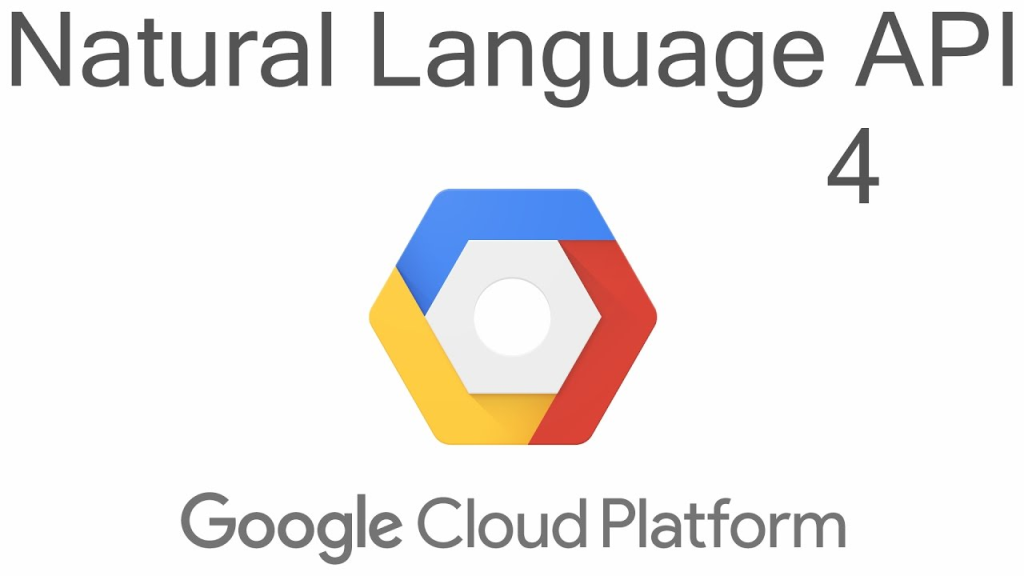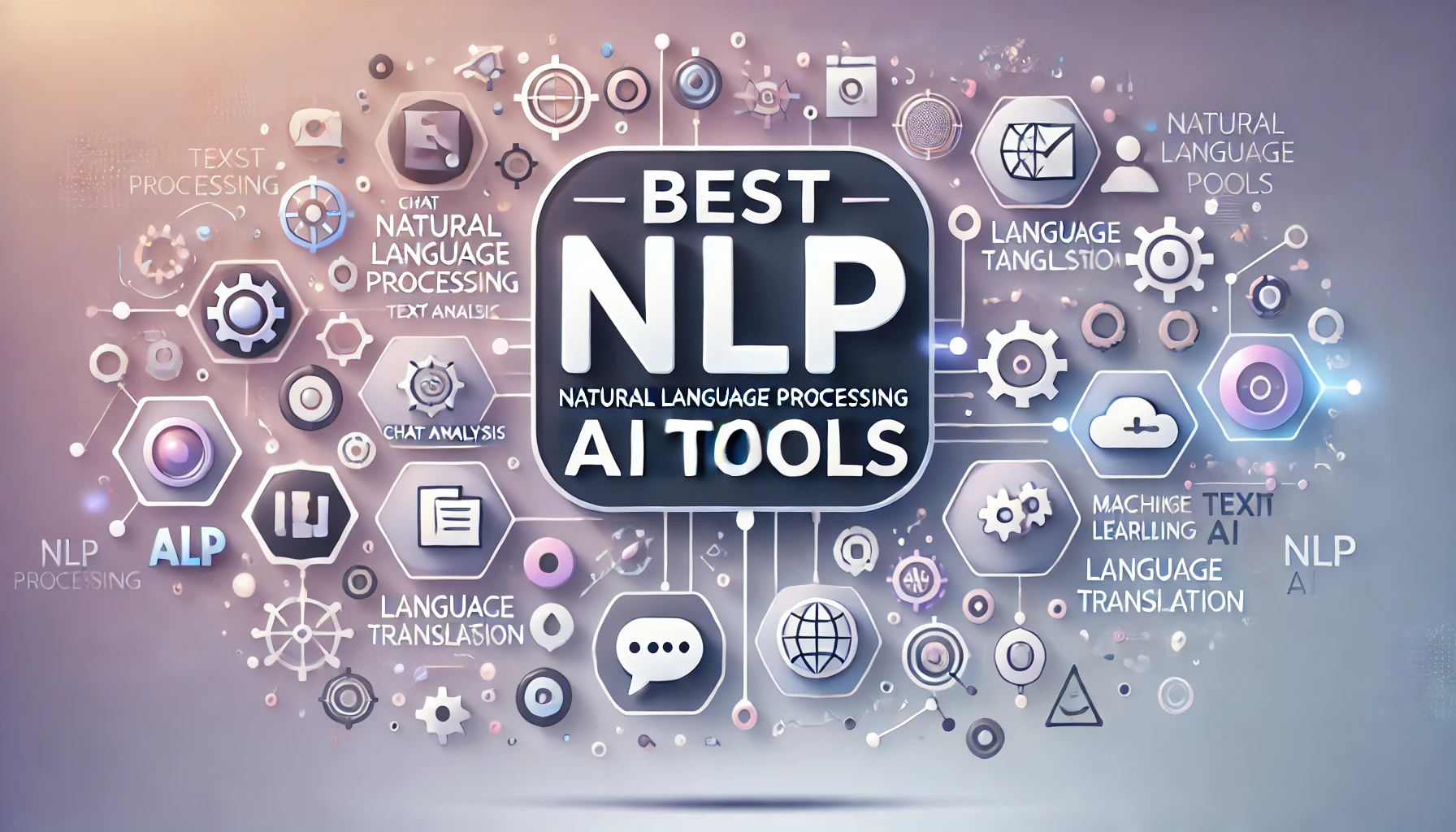Natural Language Processing (NLP) has revolutionized how we interact with technology by enabling machines to understand, interpret, and respond to human language. Whether it’s a chatbot answering your queries on a website, virtual assistants like Alexa or Siri responding to commands, or software that can translate languages instantly, NLP is at the core of these advancements. As NLP grows, more tools are emerging that allow developers and businesses to build smart applications capable of understanding and processing large amounts of text and speech data. This shift towards “natural” interaction means that technology can better serve people by adapting to the nuances, tone, and complexity of human language.

Today, NLP tools are crucial for applications beyond just simple commands. They help in sentiment analysis—where brands can gauge customer opinions, feedback, and moods—text summarization to create concise reports, entity recognition to pull out important information from documents, language translation to bridge communication barriers, and much more. In this article, we’ll explore some of the top NLP tools widely appreciated by both beginners and experts for their simplicity, versatility, and performance. From open-source libraries to full-fledged APIs, these tools are designed to empower businesses, developers, and researchers in harnessing the power of language understanding.
Why NLP Tools are Essential?

In our digital world, language is a powerful medium of interaction. However, human language is incredibly complex due to its vast vocabulary, grammar rules, nuances, and context-based meanings. NLP is essential because it enables machines to decode and understand these complexities, making it possible for us to communicate with technology in more intuitive ways. For instance, when a company wants to understand customer sentiment, they can use NLP to analyze thousands of reviews and feedbacks across various platforms quickly. Similarly, an international business can use NLP-powered translation tools to engage with customers in different regions seamlessly, without needing a separate team of human translators.
In many industries, personalization and automation are key to customer satisfaction and operational efficiency. NLP tools provide the underlying framework for this by allowing businesses to understand and respond to their users more effectively. They enable:
- Sentiment Analysis: Helping companies understand customer feelings and tailor their interactions accordingly.
- Chatbots and Virtual Assistants: Automating responses to common queries, reducing the need for human intervention.
- Text Summarization: Allowing businesses to quickly extract key insights from lengthy reports or articles.
- Language Translation: Making it easier to communicate across languages, whether in customer service or online content.
Additionally, NLP tools are essential for data analysis and extraction, where they play a role in finding relevant patterns or insights in unstructured data, such as social media posts or product reviews. As NLP tools continue to advance, businesses can build more sophisticated and human-centered applications, leading to enhanced user experience and engagement.
What are Top NLP AI Tools to Consider?
1. Hugging Face Transformers

- Overview: Hugging Face offers one of the most comprehensive NLP libraries, featuring a collection of state-of-the-art models for tasks like text generation, translation, and sentiment analysis.
- Key Features:
- Easy access to pre-trained models like BERT, GPT, and T5.
- A versatile API supporting many languages and custom NLP tasks.
- Best For: Developers looking to integrate advanced NLP models with minimal setup.
- Example Use Case: Chatbot development, text summarization, and question-answering applications.
2. spaCy

- Overview: spaCy is known for its speed and efficiency, making it ideal for large-scale NLP applications. It offers pre-trained pipelines for tasks like tokenization, entity recognition, and part-of-speech tagging.
- Key Features:
- Fast processing suitable for production environments.
- Supports integration with machine learning libraries like PyTorch and TensorFlow.
- Best For: Businesses needing high-speed, production-ready NLP capabilities.
- Example Use Case: Sentiment analysis, recommendation engines, and automated text processing.
3. NLTK (Natural Language Toolkit)

- Overview: One of the earliest NLP libraries, NLTK is rich in tools and datasets, providing robust support for text analysis and linguistic research.
- Key Features:
- Extensive collection of text processing libraries and corpora.
- Ideal for academic and research-oriented NLP projects.
- Best For: Beginners and researchers delving into NLP fundamentals.
- Example Use Case: Language translation and text mining in research settings.
4. OpenAI’s GPT Models (Generative Pre-trained Transformers)

- Overview: OpenAI’s GPT models, like GPT-3 and GPT-4, have gained massive popularity for their ability to generate human-like text responses.
- Key Features:
- Few-shot learning and fine-tuning capabilities for specific tasks.
- Extensive API support for custom applications.
- Best For: Interactive applications, chatbots, and content creation.
- Example Use Case: Content generation, customer support automation, and conversational AI.
5. Google Cloud Natural Language API

- Overview: Google Cloud’s NLP API is a powerful cloud-based tool that provides entity recognition, sentiment analysis, and syntax analysis.
- Key Features:
- Pre-trained models with the flexibility to handle custom datasets.
- Integrated seamlessly with Google Cloud’s ecosystem.
- Best For: Enterprises and developers looking for scalable NLP solutions in the cloud.
- Example Use Case: Social media monitoring, customer sentiment analysis, and document classification.
6. IBM Watson Natural Language Understanding

- Overview: IBM Watson’s NLP services focus on deep text analysis, with advanced features for entity extraction, sentiment analysis, and language translation.
- Key Features:
- Comprehensive NLP models with specialized industry solutions.
- User-friendly interface with customization options.
- Best For: Large enterprises needing robust NLP solutions for customer engagement.
- Example Use Case: Customer feedback analysis and enhanced digital marketing insights.
7. TextBlob

- Overview: TextBlob is a beginner-friendly NLP library based on NLTK and designed for simple NLP tasks.
- Key Features:
- Sentiment analysis, noun phrase extraction, and translation.
- High readability with a straightforward API.
- Best For: Developers and beginners looking for simple NLP functionality without complex configurations.
- Example Use Case: Quick text analysis, spam detection, and language translation.
8. AllenNLP

- Overview: Developed by the Allen Institute for AI, AllenNLP offers a research-focused NLP framework based on PyTorch.
- Key Features:
- Customizable models for research and experimentation.
- Comprehensive support for deep learning in NLP.
- Best For: Researchers and developers needing flexibility in custom NLP model development.
- Example Use Case: Academic research in NLP, custom model training, and experimental NLP applications.
9. Microsoft Azure Text Analytics API

- Overview: Microsoft’s Text Analytics API provides several NLP functionalities, including sentiment analysis, key phrase extraction, and language detection.
- Key Features:
- Scalable and secure for enterprise-grade applications.
- Easy integration with Microsoft’s other AI and cloud offerings.
- Best For: Businesses already using Microsoft Azure for their cloud infrastructure.
- Example Use Case: Real-time customer feedback analysis and document categorization.
How to Choose the Right NLP Tool for Your Needs?
For Quick Prototyping
TextBlob and Hugging Face Transformers are popular choices for fast and straightforward prototyping. They allow developers to quickly build and test NLP functionalities without extensive setup or customization.
- TextBlob: Known for its simplicity, TextBlob is a Python library built on top of NLTK and is ideal for quick sentiment analysis, noun phrase extraction, and basic translation. TextBlob’s syntax is user-friendly, making it accessible for beginners or developers looking to rapidly test NLP ideas or small-scale applications without dealing with complex configurations.
- Hugging Face Transformers: Hugging Face provides access to state-of-the-art pre-trained models like BERT, GPT, and T5, which are incredibly powerful for tasks like text generation, translation, and question answering. Hugging Face’s API and community models allow developers to quickly integrate advanced NLP features without having to train models from scratch, making it ideal for projects that need sophisticated language processing with minimal coding.
Ideal Use Case: These tools are best for developers who want to experiment with NLP capabilities or create demos and MVPs. They’re ideal for use in applications like prototype chatbots, simple sentiment analysis, or language translation modules.
For Production-Ready Applications
For projects that need robust, scalable, and high-performance NLP capabilities suitable for deployment in production, spaCy and Google Cloud Natural Language API stand out.
- spaCy: Designed with speed and efficiency in mind, spaCy is highly optimized for processing large volumes of text in real-time. It includes pre-trained pipelines for named entity recognition, part-of-speech tagging, and dependency parsing. spaCy is particularly favored in environments where large datasets need to be processed at high speeds, such as real-time recommendation systems or search engines. Its compatibility with popular machine learning frameworks like PyTorch and TensorFlow also allows for customized deep learning integrations.
- Google Cloud Natural Language API: This API by Google Cloud provides production-ready NLP services via the cloud, making it a scalable option for applications that handle high volumes of text analysis. Google’s API offers capabilities like sentiment analysis, entity extraction, and syntax analysis, all powered by Google’s cloud infrastructure. This makes it easy for businesses to handle fluctuating workloads and large data sets without sacrificing speed or accuracy.
Ideal Use Case: Production-ready tools are ideal for businesses and applications where fast processing, scalability, and reliability are essential. They work well for use cases such as customer sentiment analysis in social media monitoring, personalized recommendations in e-commerce, or large-scale document classification systems.
For Research and Academic Applications
NLTK (Natural Language Toolkit) and AllenNLP provide comprehensive features and flexibility for research-focused NLP projects, making them popular in academic and experimental settings.
- NLTK: Known as one of the earliest NLP libraries, NLTK offers a broad range of text processing libraries and a vast collection of linguistic data, such as corpora and lexical resources. This makes it highly suitable for researchers working on language processing fundamentals, such as parsing, tokenization, and grammatical analysis. NLTK’s modularity and rich resources make it a strong choice for those looking to explore linguistic theory or create custom language processing models.
- AllenNLP: Developed by the Allen Institute for AI, AllenNLP is a research-focused NLP library built on PyTorch, emphasizing modularity and customization. AllenNLP’s tools make it easy to experiment with new model architectures, making it a great choice for researchers aiming to push the boundaries of NLP model development. It offers pre-built components and reusable modules, simplifying the process of creating complex NLP workflows for deep learning-based language processing.
Ideal Use Case: These tools are excellent for academic research, educational purposes, and projects where the primary focus is on linguistic research, experimentation, or customized model development, such as exploring novel NLP models or linguistic analysis.
For Enterprise-Grade Solutions
Enterprises often require robust NLP solutions that offer extensive support, scalability, and integration capabilities. IBM Watson Natural Language Understanding, Microsoft Azure Text Analytics API, and Google Cloud NLP are some of the leading choices in this category.
- IBM Watson Natural Language Understanding: IBM Watson is built for enterprise-scale applications with extensive NLP functionalities, including sentiment analysis, keyword extraction, and emotion detection. It’s designed to handle complex NLP needs, with customization options that can be tailored to specific industries, like finance or healthcare. IBM’s ecosystem also provides seamless integration with other IBM products, which can be useful for businesses seeking unified solutions across departments.
- Microsoft Azure Text Analytics API: Part of the Azure AI services, Microsoft’s Text Analytics API offers sentiment analysis, key phrase extraction, and language detection, with enterprise-grade security and compliance. Businesses already using Azure services benefit from the API’s smooth integration with Azure’s infrastructure, enabling them to build powerful applications that leverage Microsoft’s extensive cloud capabilities.
- Google Cloud Natural Language API: In addition to being production-ready, Google Cloud NLP’s infrastructure supports large-scale enterprise deployments. Its API is designed to handle high request volumes and integrate with Google’s broader cloud ecosystem, making it a suitable choice for organizations requiring extensive scalability, reliability, and security.
Ideal Use Case: These tools are well-suited for enterprise applications requiring security, scalability, and regulatory compliance. They’re ideal for use cases such as automated customer service, real-time analysis of user feedback across global platforms, and custom analytics in industries that require high-performance processing with strict data protection, like healthcare or finance.
